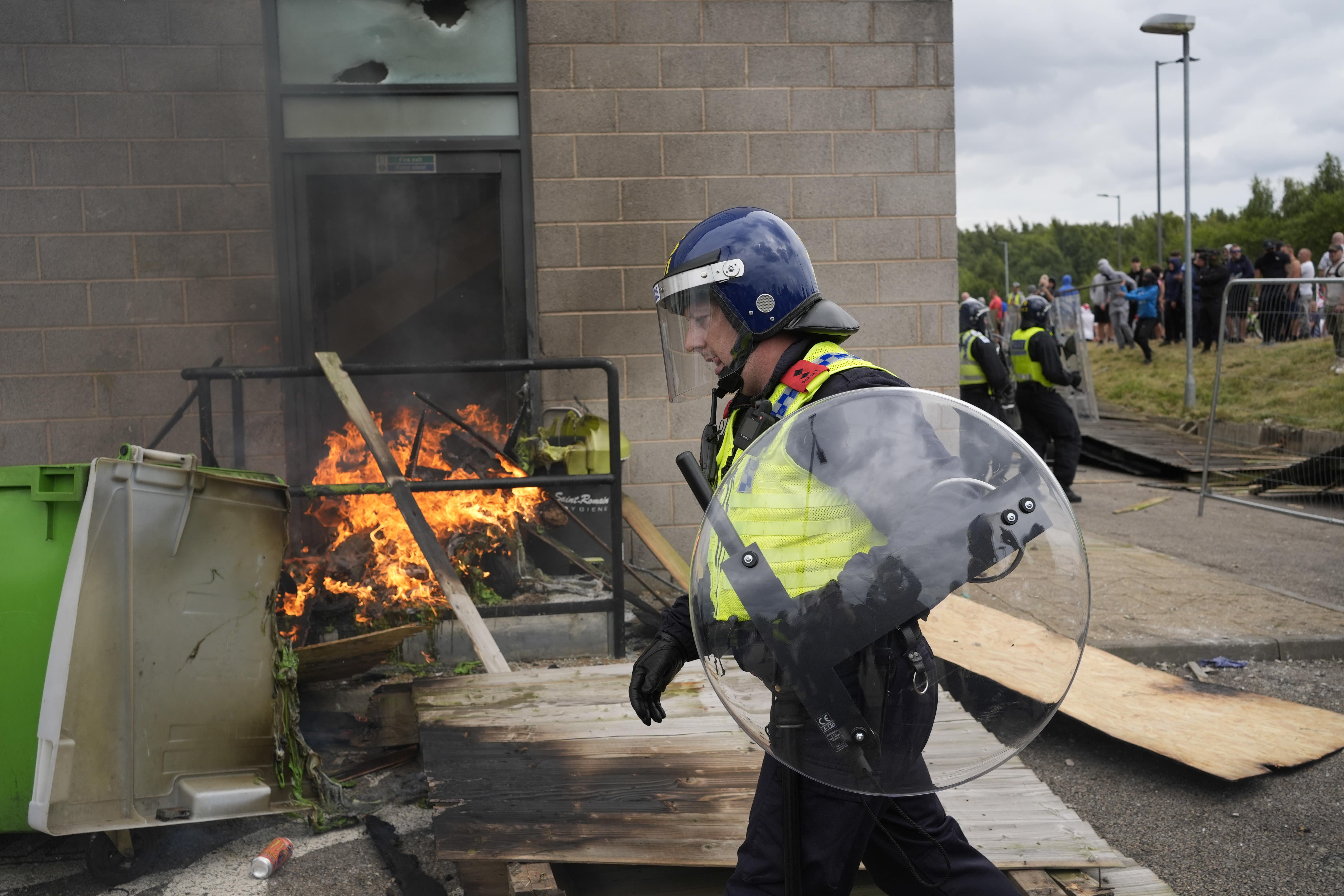The far-right riots engulfing Britain are an enormous test of this government’s authority
Editorial: Just one month ago, with the general election successfully concluded and the new government getting down to work, the UK was priding itself on being seen as a haven of stability. Alas, no longer

Here was the firm voice of leadership that the country has arguably missed for too long.
Sir Keir Starmer used the full authority of his office to give a statement, in person, from Downing Street, on a Sunday afternoon, utterly condemning what he called the “far-right thuggery” behind the violence of recent days and pledging that those involved would face the full force of the law. The perpetrators, he said, “do not represent our country and we will bring them to justice”. They would “live to regret” what they had done.
These were fine words; the right words; words indeed that the vast majority of people in this country would surely endorse. But they cannot disguise the fact that this government, in office little more than a month, is facing an enormous test of its authority and its competence.
It is almost a week since the horrendous stabbings in Southport that were followed by violent street protests, triggered in part by false information disseminated on social media. Since then, the disturbances have only spread, with rioting now affecting more than half a dozen cities, including Liverpool, Bristol and Belfast. Even as the prime minister was speaking, a hotel housing asylum seekers in Rotherham was under assault, with the police, showing immense fortitude, on the front line.
As the days have gone by, the overtly racist and anti-immigrant dimension has become more acute. Dozens of police have been injured. Even the BBC posited a risk that the authorities could “lose control of the streets” – an alarming prospect which, up to now, mercifully, is going too far.
The government has met what would be an enormous challenge to any government, not just one so newly in power. It may well have been helped by the fortunate accident of Sir Keir’s former life as a respected lawyer and director of public prosecutions. This has to be an asset at such a time.
The imperative for the government now must be to remain calm and continue to resist at all costs any panicked response, which could only exacerbate the situation. Recalling parliament, aside from being unpopular with most MPs so early in the recess, would be quite out of proportion; deploying the military, even in a limited capacity, still more so.
The police may be tired and overstretched, especially the Metropolitan Police, after many months of patrolling mostly peaceful protests in the capital, but the events of the past week are not of an order that requires such measures – which would only give those on the far right who have mostly been behind the violence an inflated sense of their importance.
The government must nonetheless keep reassuring the public – the overwhelming majority of whom are not rioting and have no time for the rioters – that it is in control and that those responsible for the violence will be punished. Public confidence is a precious and delicate commodity that can be easily, and instantly, lost – with potentially disastrous consequences. If it is to maintain confidence, the government must also show that it can honour its words.
It must ward against any breakdown of law and order. It must be able to apprehend those responsible for the violence and secure convictions. And if, for instance, there are to be night courts of the sort set up during the 2011 London riots, these must be seen to be both efficient and fair – a tall order, given the dire backlogs in the mainstream court system, and the desperate shortage of prison places.
But the unrest that has broken out is a challenge not just for the government, so soon after winning power, but for the opposition as well, albeit of a very different kind. The Reform party, in the shape of Nigel Farage, has mostly made itself look ridiculous, trying both to condemn the law-breaking and also to offer exculpatory excuses, the government probably has little to fear from that quarter.
The coincidence of the timing, however, near the start of the Conservative leadership contest, offers many a temptation to the candidates both to engage in grandstanding and to pander to some of the party’s baser instincts, especially on migration. These are temptations to which some candidates have all too enthusiastically succumbed to, and will continue to do so in the hope of leading a party that could outflank Mr Farage.
The risks, though, are not just that such rhetoric could encourage more extreme elements on the streets, but that it could also influence the contest to the point of producing a new leader quite unsuited to the responsibilities he or she will assume.
Just one month ago, with the general election successfully concluded and the new government getting down to work, the UK was priding itself on being seen as a haven of stability. Compared with the turmoil in French politics, the challenges facing the coalition in Germany, and the high dramas then unfolding in the US presidential campaign, it was. Alas, no longer.
To its credit, the new government has so far met the challenge, in terms of leadership, language and holding the line on public order. But it will only get harder from now on, as the commendable robustness of the prime minister’s words will need to be matched by equally robust action.






Join our commenting forum
Join thought-provoking conversations, follow other Independent readers and see their replies
Comments